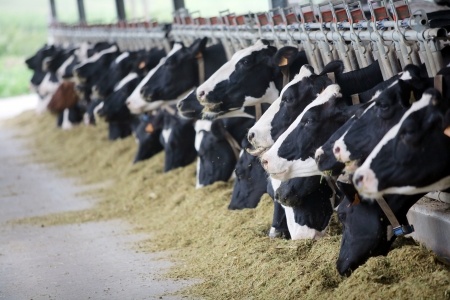
The government's newly-announced Clean Air Strategy could force small dairy farms 'out of business', contributing to the already declining number of dairy farmers, a charity has warned.
The Royal Association of British Dairy Farmers (RABDF) has expressed 'grave concerns' about Defra’s Clean Air Strategy, published last week.
The strategy highlights ways for farmers to tackle ammonia emissions through new funding and the introduction of new regulations.
But the dairy charity has highlighted its concerns. And despite submitting 'substantiated, evidence-based comments', almost none of its points have been considered or incorporated into the new strategy.
With dairy cattle responsible for 28% of ammonia emissions in 2016 (31%: 2015), RABDF admits that some changes are required by the industry to allow government reduction targets to be met by 2030.
However, it has emphasised the importance of looking at the proposals in the context of 'unintended consequences or lack of suitability'.
For example, while environmental permits work for the pig and poultry sector, the dairy industry is less intensive and does not fall into defined production systems such as ‘all continuously housed’ or ‘all continuously grazed’.
'Unrealistic'
With no threshold outlined in the proposal, RABDF has expressed hope that the government’s final emission limits will not be prohibitive to farms that have smaller herds.
The charity highlights how strict emission limits could force small dairy farms out of business, contributing to the already declining UK dairy producer numbers.
The commitment to contribute towards the costs of measures such as the adoption of low emission spreading equipment and mandatory slurry store coverage has been welcomed by the group.
However, other measures are 'unrealistic' and have not been amended from the draft version of the strategy. For example, mandatory housing designs will be a 'challenge' due to the range of systems and lack of standardisation throughout the sector.
The requirement for solid manure and digestate to be incorporated within 12 hours has been criticised as being 'impractical' by the group given the reliance of many farms on favourable weather or contractors.
RABDF added that the introduction of nitrogen limits doesn’t differentiate between bought-in sources, and those produced on-farm where farmers can maximise ‘home-grown’ nutrients and contribute to the proposed National Good Code of Practice outlined in the strategy.
